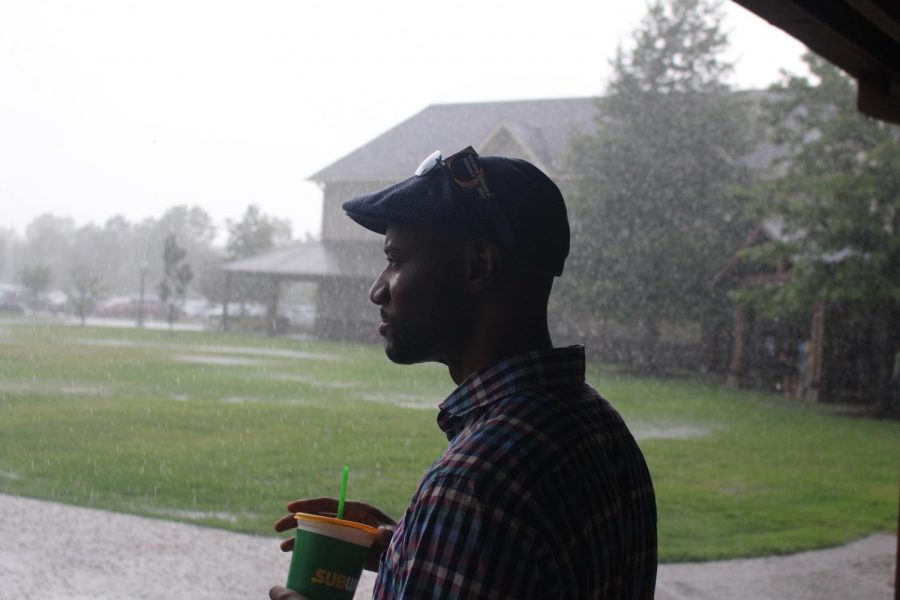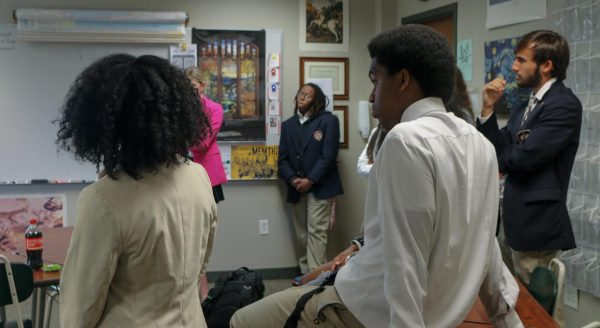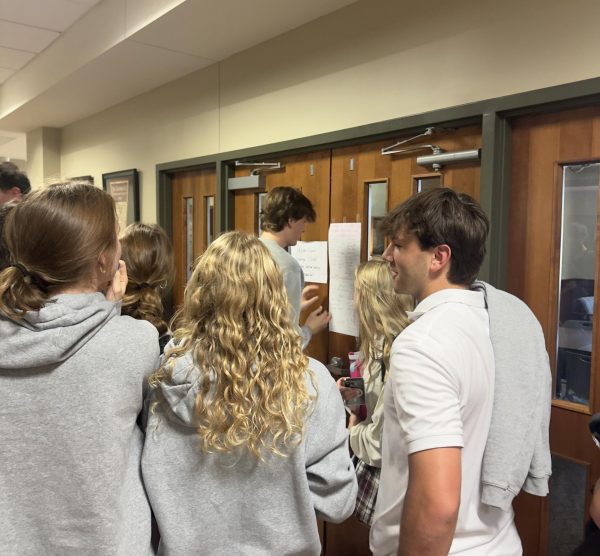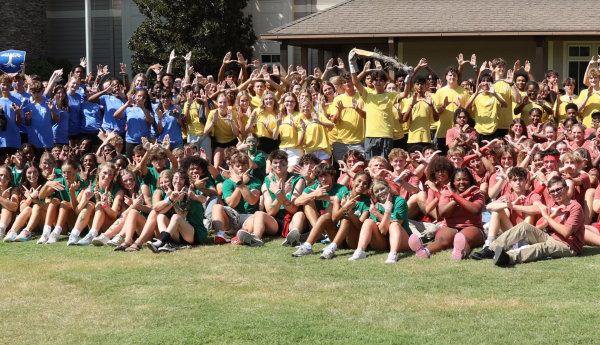Once in a Blue Moon
Near-total solar eclipse enthralls Gryphon spectators despite storm
“It doesn’t happen every day,” junior Lindsey Pepper said of the recent solar eclipse.
And she’s right. The eclipse that occurred on Aug. 21 was the first in the new millennium to move across the entirety of North America, and St. George’s students, thanks to the efforts of faculty and administration, had front row seats.
A mood of uncertainty fell over the campus as heavy rainstorms rolled in around noon, and students suspected their chances to see the eclipse were slim since peak visibility would occur at roughly 1:25 p.m.
According to NASA, a partial eclipse occurs “when the moon passes in front of the sun, off center and only a portion of the sun’s disk is obscured.” At peak visibility in Memphis, the moon eclipsed 94% of the sun, but those who hoped to view the eclipse were unsure if the storm would pass in time to get a good view.
Students waited under awnings where astronomy teacher Mr. Mike Smothers’ telescope was covered with a tarp to protect it from the storm. Faculty and staff worked to keep order in the midst of the confusion that ensued, and the students were rewarded for their patience when the clouds parted, revealing the partial solar eclipse.
While not all expectations were met because of the inclement weather, upper school history teacher Dr. Marianne Leung believes the storm made the experience more memorable.
“Because it was cloudy and rainy and the worst possible conditions, it was even more exciting to actually see it than if we would have had an hour of [visibility],” Dr. Leung said. “But now to actually see it when you thought maybe possibly we couldn’t, that’s pretty exciting.”
Eighth-grader Madeline Lee had hoped for more from the eclipse.
“It was overhyped,” Lee said. “It was pretty cool at first, but it was so small, so it wasn’t as exciting as it seems.”
While Lee wasn’t thrilled to see the eclipse, some students didn’t even have the chance, including junior Surabhi Singh.
“My mom read a bunch of articles on people who got blind,” Singh said.
Singh spent the event indoors because her purposefully-unsigned permission slip prevented her from viewing the eclipse, but she said she didn’t miss much because of the weather.
Fear of eye damage is nothing new. Mr. Smothers was not allowed to view the 1979 eclipse, and neither were his classmates. His school was overly conscious of the risks associated with looking directly at the eclipse, even with protective eyewear. He was glad to see this one.
“Even with the clouds and the rain and all that, I’ve seen several partial eclipses before, but I’ve never seen that much coverage before,” Mr. Smothers said. “I would’ve loved to see the whole thing uninterrupted, but even what we were able to see was amazing for me.”
Mrs. Amy Bourdeau, a parent of three St. George’s students, said she appreciated the school’s thoroughness regarding safety and communication.
“It was an opportunity for everyone at SGIS to witness the event and learn about its significance,” Mrs. Bourdeau said.
She appreciated the effort the administration made to make the event as enjoyable as possible for the students.
Many students remained in Collierville to witness the eclipse, but others travelled to the path of totality. Junior Cooper McCreery travelled to Nashville to witness the total eclipse and was shocked to see the city go dark at 1:30 p.m.
Having read “Total Eclipse” by Annie Dillard for Dr. Margaret Robertson’s AP English Language and Composition class, a short story about Dillard’s own eclipse experience, McCreery felt prepared.
“I wasn’t really sure how excited I was for the whole eclipse thing until I read the story,”
McCreery said. “It really made the eclipse a lot more mysterious.”
While opinions differed about the eclipse, some members of the St. George’s community enjoyed it so much they are already preparing for the next solar eclipse in 2024.
“Seeing [the eclipse] was something you can’t really describe,” McCreery said. “I definitely want to experience that again.”













Olivia Walker • Aug 7, 2018 at 11:51 AM
11/10 eclipse. Props to Madeline Lee for telling it like it is.